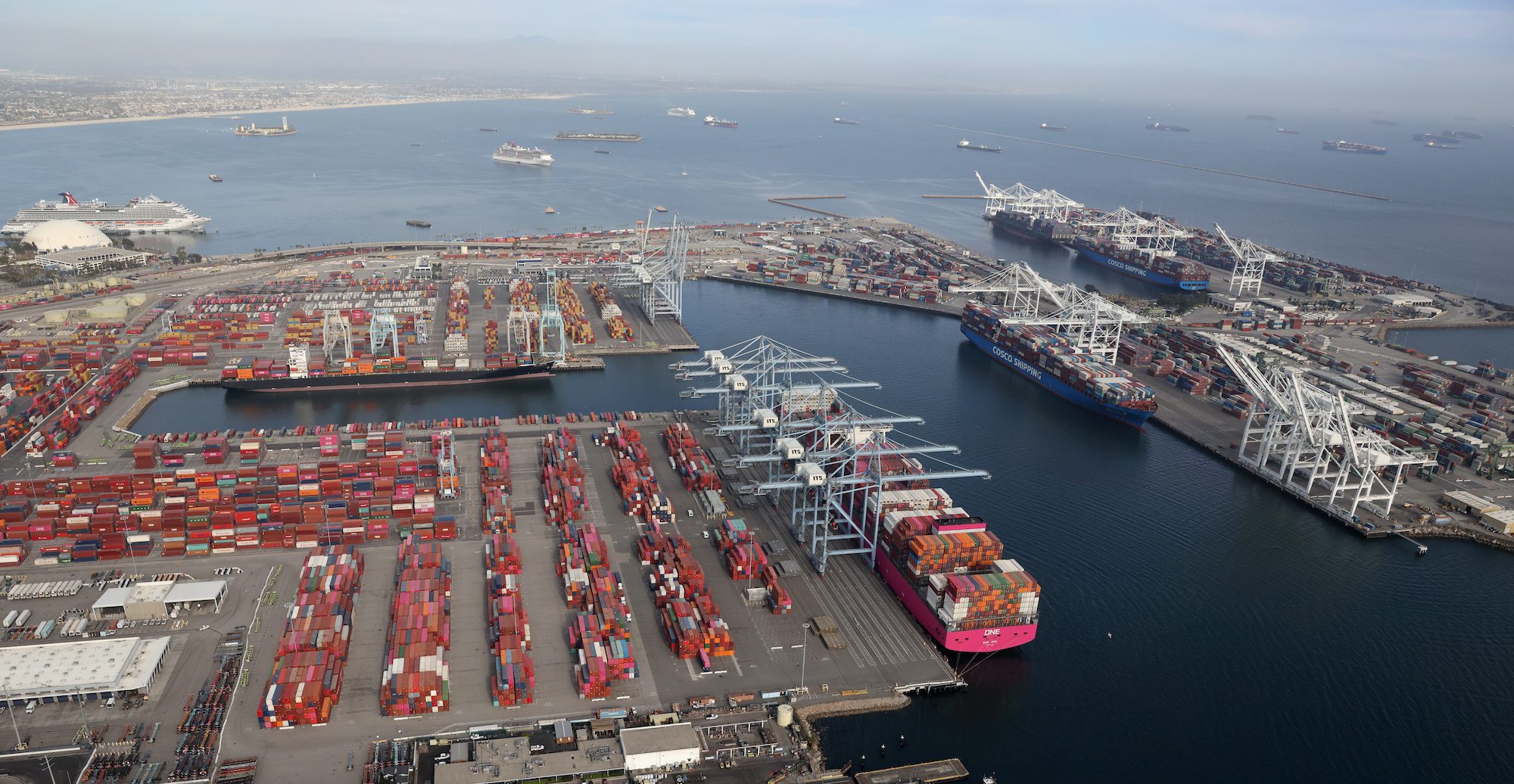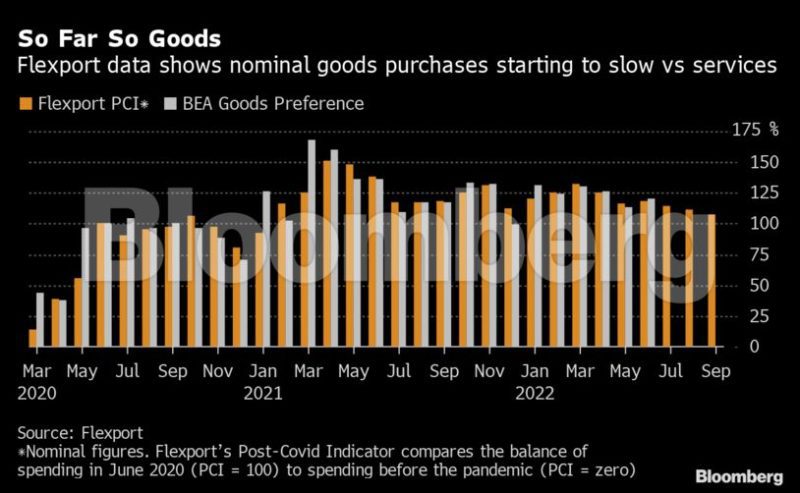U.S. Customs Revenue Tops $100 Billion for First Time Amid Tariff Surge
US revenue from customs duties this fiscal year surpassed $100 billion for the first time, reflecting higher tariffs imposed by the Trump administration.

By Brendan Murray (Bloomberg) —
For two years, the pandemic spurred Americans to buy more goods at the expense of services. That shift — which boosted everything from container shipping rates to sales of Peloton exercise bikes — looks to be grinding slowly toward an end.
Flexport Inc., a San Francisco-based freight forwarder, developed a gauge that sets zero as the baseline for pre-Covid spending and June 2020 at a level of 100% that the company used to mark the start of the work-from-home economy.
The measure, designed to track the actual goods-versus-services consumption balance from the US Bureau of Economic Analysis, has hovered well above 100% for much of the past two years as US households splurged on merchandise and cut back on services such as restaurants and travel.

The latest reading of Flexport’s Post-Covid Indicator released Tuesday shows it falling for a third straight month, to 107% in September — the lowest level since January 2021 and well off its peak of 151% set in April last year.
When adjusted for inflation, the return to normal spending behavior is even sharper, driven by demand relative to services for non-durable goods such as clothes and personal-care products. That figure is expected to come close to its pre-pandemic level, hitting 18% in September while durable goods consumption hits 90%, according to Flexport calculations.
“Spending preferences are heading back to pre-pandemic levels,” said Chris Rogers, a supply-chain economist with Flexport in London. “It has been taking a long time to get there — this isn’t something that turns on a dime. It’s going to take much of the rest of this year to get even close to the old normal.”
© 2022 Bloomberg L.P.

Sign up for gCaptain’s newsletter and never miss an update

Subscribe to gCaptain Daily and stay informed with the latest global maritime and offshore news


Stay informed with the latest maritime and offshore news, delivered daily straight to your inbox
Essential news coupled with the finest maritime content sourced from across the globe.
Sign Up